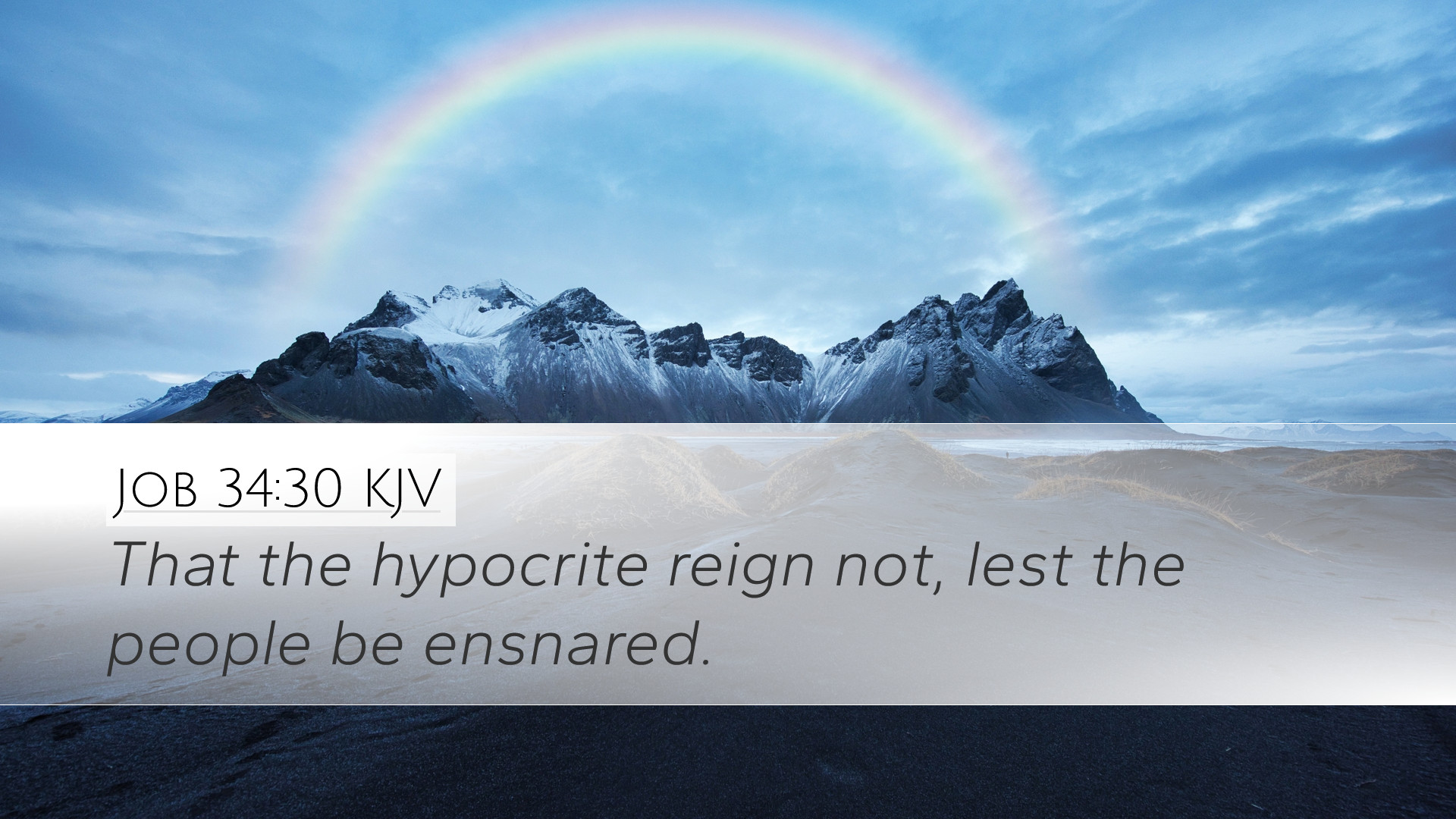Commentary on Job 34:30
Job 34:30 states, "That the hypocrite reign not, lest the people be ensnared." This verse offers a profound insight into the themes of divine justice and the need for righteousness in leadership. The following is a synthesis of insights from various public domain commentaries, aiming to provide a meaningful exploration for pastors, students, theologians, and Bible scholars.
Contextual Background
The Book of Job deals extensively with the problem of suffering and divine justice. This particular verse falls within Elihu’s speeches, wherein he presents a defense of God’s righteousness and critiques the attitudes of those who are hypocritical.
The Reign of the Hypocrite
1. The Nature of Hypocrisy: Matthew Henry describes the hypocrite as one whose outward appearances do not reflect their true nature. Hypocrisy undermines integrity and paves the way for malfeasance in leadership. God’s justice is shown in the withholding of authority from such individuals.
2. Implications for Leadership: Albert Barnes highlights that when the hypocrite reigns, it leads to destruction and compromise for the people. Leaders lacking in integrity not only fail to uphold justice but also mislead those they govern. Theocratic governance requires leaders whose character aligns with divine principles.
The Danger to the People
1. Ensnarement of the People: Adam Clarke emphasizes that the presence of hypocrisy in authority can ensnare the populace, leading them to adopt a similar duplicity. A leader's character profoundly influences their followers, resulting in widespread moral decay.
2. The Call for Righteous Leadership: Henry further expounds that the verse serves as a function of prevention; it suggests not only the caution against the hypocrite but also the need for righteous individuals to ascend in leadership for the welfare of all.
Divine Sovereignty and Justice
1. God’s Role in Governance: Job 34:30 substantiates the belief that God actively governs the affairs of men. Barnes articulates that God ensures that the hypocrite does not ultimately triumph, aligning with the broader theme of divine justice.
2. The Moral Order: In Elihu's argument, the character of leaders affects not only their fate but the fate of their nations. Clarke asserts that God's moral order is maintained by the removal of those who do not honor Him, thus preserving the community from spiritual and social corruption.
Application for Today
1. Importance of Character in Leadership: This verse challenges contemporary leaders—both secular and spiritual—to reflect upon their integrity. Pastors and church leaders must model Christ-like behavior, as their influence can either uplift or ensnare their congregations.
2. Community Vigilance: The congregation is called to be vigilant, as Henry notes, to ensure that they support leaders who are genuinely aligned with God’s will. This requires discernment and a commitment to fostering righteousness within communities.
Conclusion
Job 34:30 serves as a timeless reminder of the importance of integrity in leadership and the divine protection exercised over the faithful. The insights from these esteemed commentaries emphasize both the peril of hypocrisy and the profound need for virtuous individuals to lead.
As theologians and scholars reflect on this text, may they be inspired to pursue righteousness and guide others in understanding the implications of godly leadership, ensuring that the people are not ensnared by the deception of hypocrisy.


